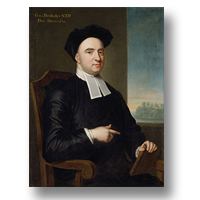|
1.
|
Berkeley Studies:
Volume >
25
Nancy Kendrick
The ‘Empty Amusement’ of Willing: Berkeley on Agent Causation
abstract |
view |
rights & permissions
| cited by
Some aspects of Berkeley’s view of volitional causation would be unobjectionable to his contemporaries. That minds are efficient causes and that their causal power consists in volition would be troubling to neither Descartes nor Locke, since both recognized that through the power of will, minds could create ideas. But Berkeley’s view is not that agent causation is one kind of causal power, it is that it is the only kind, and few of his contemporaries would have found that claim acceptable. Malebranche is an exception: he also thought agent causation the only genuine causation. Many commentators link Berkeley with Malebranche in supposing that both treated necessary connection as the defining feature of causation. I argue that this is mistaken: a “true cause” for Berkeley, is not, as it is for Malebranche, such that the mind perceives a necessary connection between it and its effects. A true cause is a volitional cause. This is a claim about what causation is, not a claim about where necessary connections are located (in the will rather than in the world). Berkeley’s view of agent causation offers an alternative to causation understood as necessary connection; it does not provide an alternative place for necessary connections to occur. This reading of Berkeley permits him to hold that both an infinite spirit and finite spirits are genuine causes.
|
|
